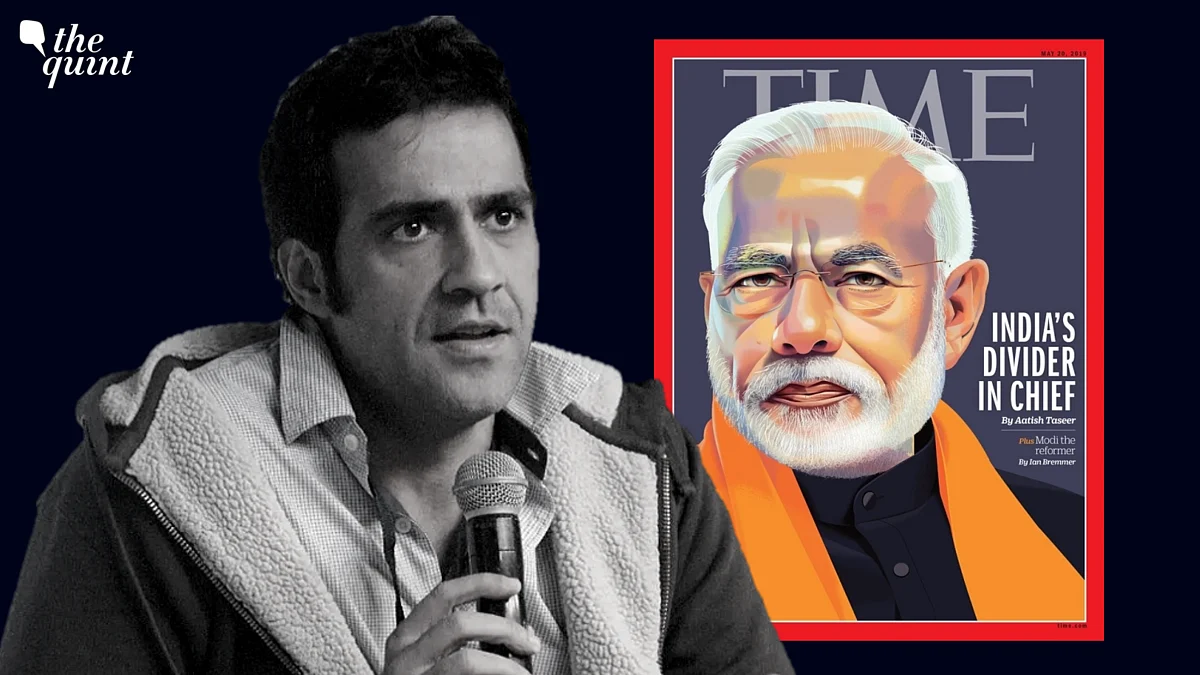
Aatish Taseer: Cut Off From My Country & Kin for Criticising Modi
In May 2019, Taseer had written a stinging criticism of Modi’s first stint as PM, titled ‘India’s Divider in Chief’.

advertisement
Cameraperson: Gautam Sharma
Video editor: Ashish Maccune
In an anguished article, novelist and journalist Aatish Taseer has reacted to the Modi government’s decision to revoke his Overseas Citizenship of India (OCI) status.
Taseer’s article on the OCI row has been published by TIME, the same magazine for which he had written a stinging criticism of Narendra Modi’s first stint as Prime Minister. It had featured on the May cover of the magazine, at the height of the general election campaign, with a picture of Modi accompanied by the headline, “India’s Divider in Chief.”
‘BJP Called Me Pakistani’
Recounting the immediate backlash to his article in May, Taseer starts off by saying that his piece had examined Modi’s record in India and the atmosphere of Hindu nationalism in the country.
Taseer adds, “Within twenty-four hours of my piece being published, the BJP spokesman, Sambit Patra, seized on it to delegitimize me. Addressing a press conference, Patra said that the TIME story had been written by a Pakistani and “that nothing better could be expected from Pakistan.” It was a calculated and dangerous misrepresentation, which Prime Minister Modi himself soon seized on. “Time Magazine is foreign,” he said, “the writer has also said he comes from a Pakistani political family. That is enough for his credibility.”
‘...but India Is My Country’
Taseer explains why he has always been “viewed as Indian in India” though he has British citizenship.
He writes, “India is my country. The relationship is so instinctive that, like an unwritten constitution, I had never before felt it necessary to articulate it. I could say I was Indian because I had grown up there, because I knew its festivals and languages, and because all five of my books were steeped in its concerns and anxieties. Though I am a British citizen by birth, the OCI, as a substitute for dual citizenship, had made this bond even more real, as it had for so many people of Indian origin worldwide.”
‘Hadn’t Been in Contact With My Father Till I Was 21’
Taseer’s father is the late Salman Taseer, a Pakistani politician who was serving as the Governor of the Pakistani province of Punjab when he was assassinated in 2011. Aatish admits to having had a “complicated” relationship with his father.
He reveals, “Born out of wedlock, I was not in contact with my father until I was twenty-one.”
His mother Tavleen Singh is an Indian columnist and reporter. It was she who had first alerted Taseer that his OCI was being revoked. In the TIME article, he writes, “My mother sent me a WhatsApp message of the letter, informing me that the Government of India was revoking my Overseas Citizenship of India (OCI).”
The Larger Picture
Taseer’s parting comments are on the larger picture this incident reminds him of. He argues,
In addition to the situation in Jammu and Kashmir, he also refers to the NRC in Assam.
(At The Quint, we question everything. Play an active role in shaping our journalism by becoming a member today.)
- Access to all paywalled content on site
- Ad-free experience across The Quint
- Early previews of our Special Projects
Published: 08 Nov 2019,01:41 PM IST